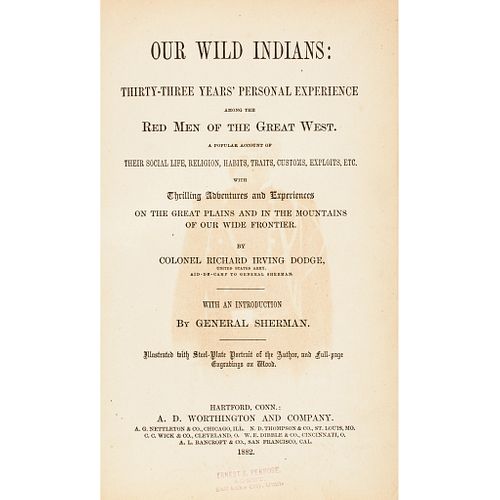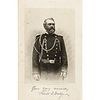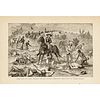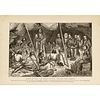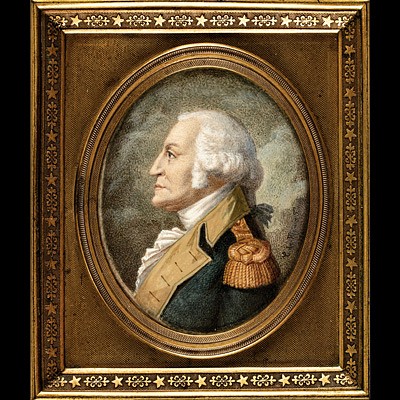1882 Our Wild Indians Book by Col Richard Irving Dodge Intro by Gen William T Sherman
Lot 243
Estimate:
$600 - $900
Absentee vs Live bid
Two ways to bid:
- Leave a max absentee bid and the platform will bid on your behalf up to your maximum bid during the live auction.
- Bid live during the auction and your bids will be submitted real-time to the auctioneer.
Bid Increments
| Price | Bid Increment |
|---|---|
| $0 | $10 |
| $200 | $20 |
| $300 | $25 |
| $500 | $50 |
| $1,000 | $100 |
| $2,000 | $200 |
| $3,000 | $250 |
| $5,000 | $500 |
| $10,000 | $1,000 |
| $20,000 | $2,000 |
| $30,000 | $2,500 |
| $50,000 | $5,000 |
| $100,000 | $10,000 |
| $200,000 | $20,000 |
| $300,000 | $25,000 |
| $500,000 | $50,000 |
About Auction
By Early American History Auctions
May 22, 2021
Set Reminder
2021-05-22 12:00:00
2021-05-22 12:00:00
America/New_York
Bidsquare
Bidsquare : Autographs-Colonial-Political-Americana
https://www.bidsquare.com/auctions/early-american-history-auctions/autographs-colonial-political-americana-6913
302 Lots of Rare, Historic Autographs, Americana, Civil War Era, George Washington, Abraham Lincoln, Slavery & Black History, Revolutionary War Era, Colonial America, Federal Period, War of 1812, Colonial Currency, Indian Peace Medals & more... Early American History Auctions auctions@earlyamerican.com
302 Lots of Rare, Historic Autographs, Americana, Civil War Era, George Washington, Abraham Lincoln, Slavery & Black History, Revolutionary War Era, Colonial America, Federal Period, War of 1812, Colonial Currency, Indian Peace Medals & more... Early American History Auctions auctions@earlyamerican.com
- Lot Description
Western America
1882 "Our Wild Indians" Book by Colonel Richard Irving Dodge with Introduction by General William Tecumseh Sherman
1882-Dated, (Publication Date: 1883) First Edition "Our Wild Indians" Book by Colonel Richard Irving Dodge, with Introduction by General William Tecumseh Sherman, Published by A. D. Worthington and Company, 1883, Fine.
First Edition Hardcover Book, 650 pages, measures about 9" x 6", its full title, "Our Wild Indians: Thirty-Three Years' Personal Experience Among the Red Men of The Great West." Published in 1882 at Hartford (CT), by A.D. Worthington and Company. Illustrated with a Steel Plate Portrait of the author, and 17 full-page Engravings. Complete (a leaf from the table of contents is loose yet present). Some expected wear and bumps to the bottom corners and ends of spine. The first 100 pages have an extremely tiny tear on the edge and the margins and text is in nice condition.
An incredibly interesting read as Author Dodge wrote in detail about the daily lives and activities of the Plains Indians, revealing things that most Americans today have never heard or read. In the last chapter of this book, Dodge excoriates the American Treaty system that essentially stole the Indians' lands, left them destitute and starving, and gave them no hope of American citizenship. Today, almost 140 years after Dodge's book, his words still ring true. A rare First Edition which we located two used examples for sale by Book Sellers priced between $1,000 to $1,250. A great contemporary book relaying his "Thirty-Three Years' Personal Experience Among the Red Men of the Great West" by Richard Irving Dodge.
Richard Irving Dodge (1827 - June 16, 1895) was a colonel in the United States Army. Dodge was born in North Carolina and died after a long and successful career in the U.S. Army. He began as a cadet in 1844 and retired as a Colonel May 19, 1891.
Dodge was Aide-De-Camp to General William Tecumseh Sherman from 1881-1882. In the second publishing of his memoirs General Sherman wrote, "... the vacancy made by Colonel McCook was filled by Lieutenant-Colonel Richard Irving Dodge, Twenty-third Infantry then serving at a cantonment on the Upper Canadian-an officer who had performed cheerfully and well a full measure of frontier service, was a capital sportsman, and of a perfect war record. He also remained with me until his promotion as Colonel of the Eleventh Infantry, 26 January 1882."
William Tecumseh Sherman (February 8, 1820 - February 14, 1891) was an American soldier, businessman, educator, and author. He served as a general in the Union Army during the American Civil War (1861-1865), receiving recognition for his command of military strategy as well as criticism for the harshness of the scorched earth policies he implemented in conducting total war against the Confederate States. British military theorist and historian B. H. Liddell Hart declared that Sherman was "the first modern general".
Born in Ohio to a politically prominent family, Sherman graduated in 1840 from the United States Military Academy at West Point. He interrupted his military career in 1853 to pursue private business ventures, and at the outbreak of the Civil War he was superintendent of the Louisiana State Seminary of Learning & Military Academy (now Louisiana State University). Sherman distinguished himself at the First Battle of Bull Run in 1861 before being transferred to the Western Theater.
Stationed in Kentucky, his pessimism about the outlook of the war led to a nervous breakdown that required him to be briefly put on leave. He recovered by forging a close partnership with General Ulysses S. Grant. Sherman served under Grant in 1862 and 1863 during the battles of forts Henry and Donelson, the Battle of Shiloh, the campaigns that led to the fall of the Confederate stronghold of Vicksburg on the Mississippi River, as well as the Chattanooga Campaign that culminated with the routing of the Confederate armies in the state of Tennessee.
In 1864, Sherman succeeded Grant as the Union commander in the Western Theater. Sherman then led the capture of the strategic city of Atlanta, a military success that contributed to the re-election of President Abraham Lincoln. Sherman's subsequent march through Georgia and the Carolinas involved little fighting but large-scale destruction of cotton plantations and other infrastructure, a systematic policy intended to undermine the ability and willingness of the Confederacy to continue fighting. Sherman accepted the surrender of all the Confederate armies in the Carolinas, Georgia, and Florida in April 1865, but the terms that he negotiated were considered too lenient by US Secretary of War Edwin Stanton, who ordered General Grant to modify them.
When Grant became President of the United States in March 1869, Sherman succeeded him as Commanding General of the Army. Sherman served in that capacity from 1869 until 1883 and was responsible for the U.S. Army's engagement in the Indian Wars during that period. He steadfastly refused to be drawn into politics and in 1875 published his Memoirs, one of the best-known first-hand accounts of the Civil War.
Our Auction Contents:
Black History & Slavery: (Lots 1 - 63)
Abraham Lincoln Related: (Lots 64 - 74)
Historic Autographs: (Lots 75 - 235)
Colonial America: (Lots 236 - 261)
Revolutionary War: (Lots 262 - 304)
George Washington Related: (Lots 305 - 306)
Early American Guns & Weapons: (Lots 307 - 318) - Shipping Info
-
Early American provides in-house worldwide shipping. Please contact us directly if you have questions about your specific shipping requirements.
-
- Buyer's Premium



 EUR
EUR CAD
CAD AUD
AUD GBP
GBP MXN
MXN HKD
HKD CNY
CNY MYR
MYR SEK
SEK SGD
SGD CHF
CHF THB
THB